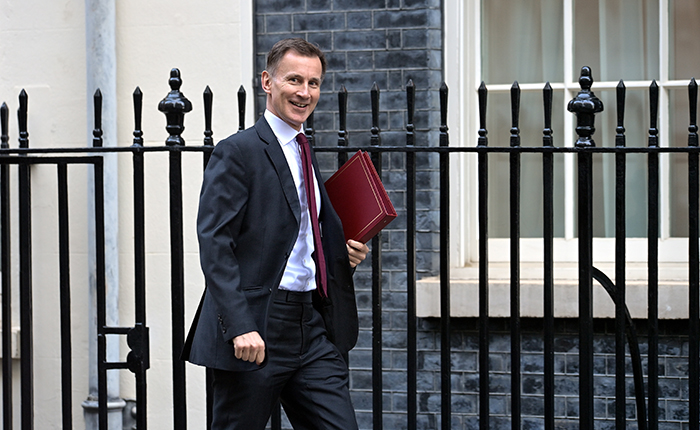
The Chancellor should introduce ‘regional’ stamp duty bands in next week’s Spring Budget to support buyer and help first-time buyers get on the housing ladder in the South, according to a leading property website.
Rightmove is the latest organisation calling for widespread stamp duty reforms. It says the Government should make the first-time buyer stamp duty concessions permanent, but adds that there is the opportunity for more significant reform of this housing tax.
This follows calls from the Institute of Fiscal Studies for the Chancellor to reduce stamp duty to help stimulate economic growth.
Rightmove’s data highlights the disproportionate effect of stamp duty across the country, with this tax burden falling more heavily on home buyers and movers in London and the South East.
Rightmove points out that only 4% of homes for sale in London are exempt from stamp duty charges (for all buyers), because they are priced below the £250,000 threshold. This compares to 71% of homes for sale in the North East; 55% of homes for sale in Yorkshire and The Humber, 51% of homes in the North West and 43% in the East Midlands. In contrast just 16% of homes in the South East are exempt.
First-time buyers currently avoid stamp duty on homes priced up to £425,000. But again Rightmove’s data shows huge regional variation, with just 16% of homes for sale in London priced below this threshold, compared to 91% of homes in the North East.
Rightmove says a more localised approach to stamp duty charges in line with regional property prices could support more first-time buyers in getting a foot on the ladder in these regions, and also encourage more movement up and down the property ladder.
It is also calling for more innovation when it comes it comes to tackling affordability for buyers – and better incentives for landlords to improve the energy efficiency of their homes.
Rightmove points to speculation that the Chancellor may introduce a ‘99% mortgage scheme’ requiring just a 1% deposit for buyers.
It says data from the FCA and Bank of England shows only around 5% of mortgages currently taken out are at 95% or higher LTV.
Whilst innovation in this space are welcome, Rightmove says any new scheme should looking to support a larger group of future first-time buyers. It says that while a 99% schemes will support those with smaller deposits, including those currently renting, it does not address the issue of being able to pass an affordability stress test at 8%-plus, while also being inside the 4.5 loan to income ratio.
Rightmove is also calling for the government introduce measure to help landlords make their properties more energy efficient. It is calling for bigger and more accessible grants or tax savings for landlords “greening” old homes, which may also encourage more to stay in the buy-to-let sector rather than selling up.
Rightmove’s research shows there has been a decline in the number of landlords planning to make energy efficiency upgrades to properties with lower EPC ratings. This follows Government backtracking on some energy efficiency targets last year.
In 2022, over a third (36%) of landlords said they planned to make improvements to properties rated below a C, but this dropped to 26% by late 2023.
Rightmove’s property expert Tim Bannister says: “Stamp duty is a big barrier to moving, with some put off by the hefty tax in addition to other moving costs. At the very least the government should be thinking about making the current changes to first-time buyer stamp duty charges permanent, with the higher thresholds introduced in 2022 due to expire next year.
“However, we think there is an opportunity to go further. With such regional variations in property prices, increasing stamp duty thresholds in line with these regional variations would seem a logical first step for stamp duty reform. Whilst longer-term supply measures are also needed, this could be one way to help first-time buyers trying to get onto the ladder in more expensive parts of England.”
Regarding changes to the buy-to-let sector Rightmove’s lettings expert Christian Balshen adds: “Due to the lack of available and accessible funding, many landlords aren’t in a financial position to be able to carry out major energy efficiency upgrades to their properties. A further lack of clarity around potential future EPC regulations means we’ve seen a drop in the number of landlords who are actively deciding to make their properties greener.
“Ultimately this will be to the detriment of tenants who are increasingly wanting to live in energy efficient properties, and so we’d encourage any financial incentives that can be provided to landlords to improve the energy efficiency of the UK private rented sector.”
Commenting on these proposals Propertymark CEO Nathan Emerson says he hoped the Government would announce further changes to stamp duty. “Stamp duty reform was omitted from the Autumn Budget, and the Government has one final opportunity potentially to spark growth in the housing market that has been affected by economic turbulence since 2020.
“The stamp duty cuts that were enacted in the wake of the Covid pandemic encouraged many buyers to take their first step onto the housing ladder, so we hope that the Chancellor will extend those cuts beyond the expiration date of next year.”



